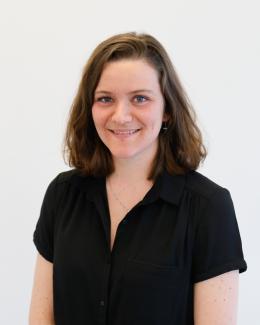Ombeline Labaune: Perceive and Understand Human Movement
PhD student in the science of sports and human movement at the laboratory for complexity, innovation, motor skills and sports (CIAMS - Université Paris-Saclay), Ombeline Labaune is exploring "the vitality of human movement in interaction with others: motor resonance, social contagion?”.
Tell us about your thesis subject and your research work.
Here is an example: we have all been on the street behind someone moving more slowly. We often consider overtaking them. That decision does not only depend on our own speed. It also depends on the other person’s speed. Or more importantly, how you perceive it. If you are in a hurry, you will find them slow and overtake them. If you have more time, you may make a different decision. I study the intensity of movement - how “action” and “perception” interact. In the laboratory, we record participants’ movements using dedicated systems. We then show them their movements and ask them to estimate their speed.
What is your academic background?
I completed an undergraduate degree in the science of sports and physical activity (STAPS) specialised in health and adapted physical activity. I then went to Quebec, where I completed the first year of my Master's as part of an exchange programme. I already knew I wanted to be involved in research and I thought it would be a good transition. I continued with the second year of my Master’s researching psychology, motor skills and sports performance.
What was your motivation to do a thesis and how did you choose your subject?
During my undergraduate programme, I enjoyed listening to professors talk about scientific studies and discovering the sources of our learning. During my internships in biomechanics, I realised that many psychological parameters that interested me were not considered. I wanted to link the two fields.
Why did you decide to participate in the My Thesis in 180 Seconds competition?
I wanted to learn to speak quickly and clearly about my subject. That was not the case until recently. Learning to summarise and simplify the explanation of my work helped me to have more perspective. I also wanted feedback from other PhD students and teaching staff from very different fields.

